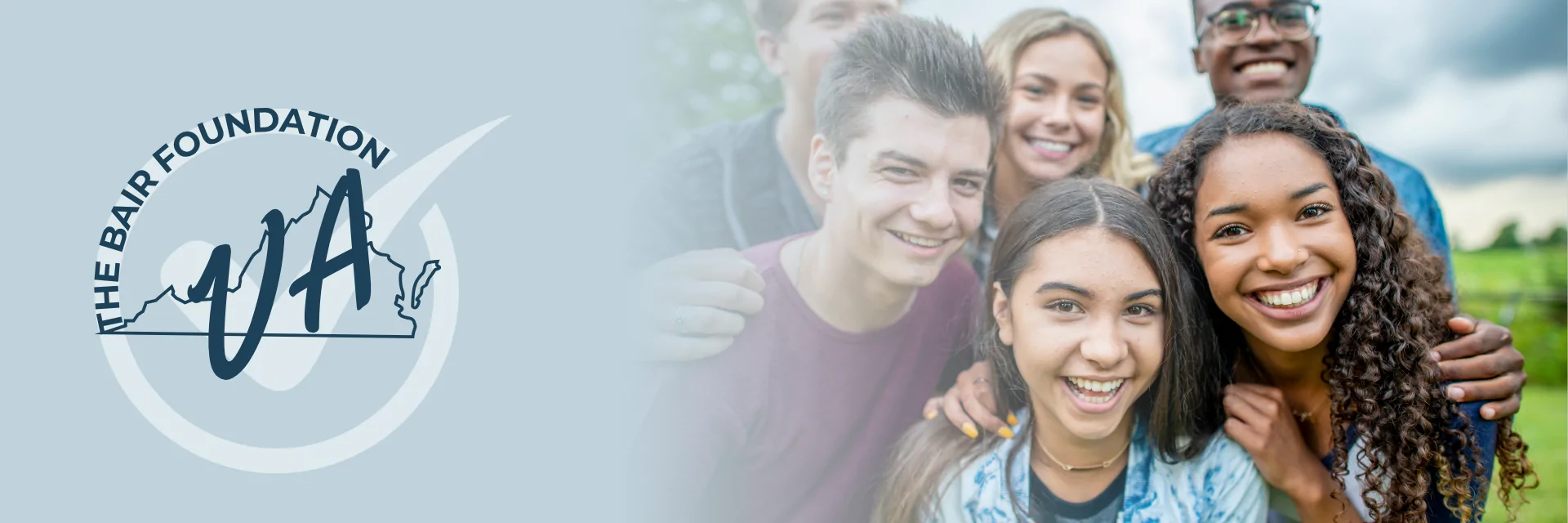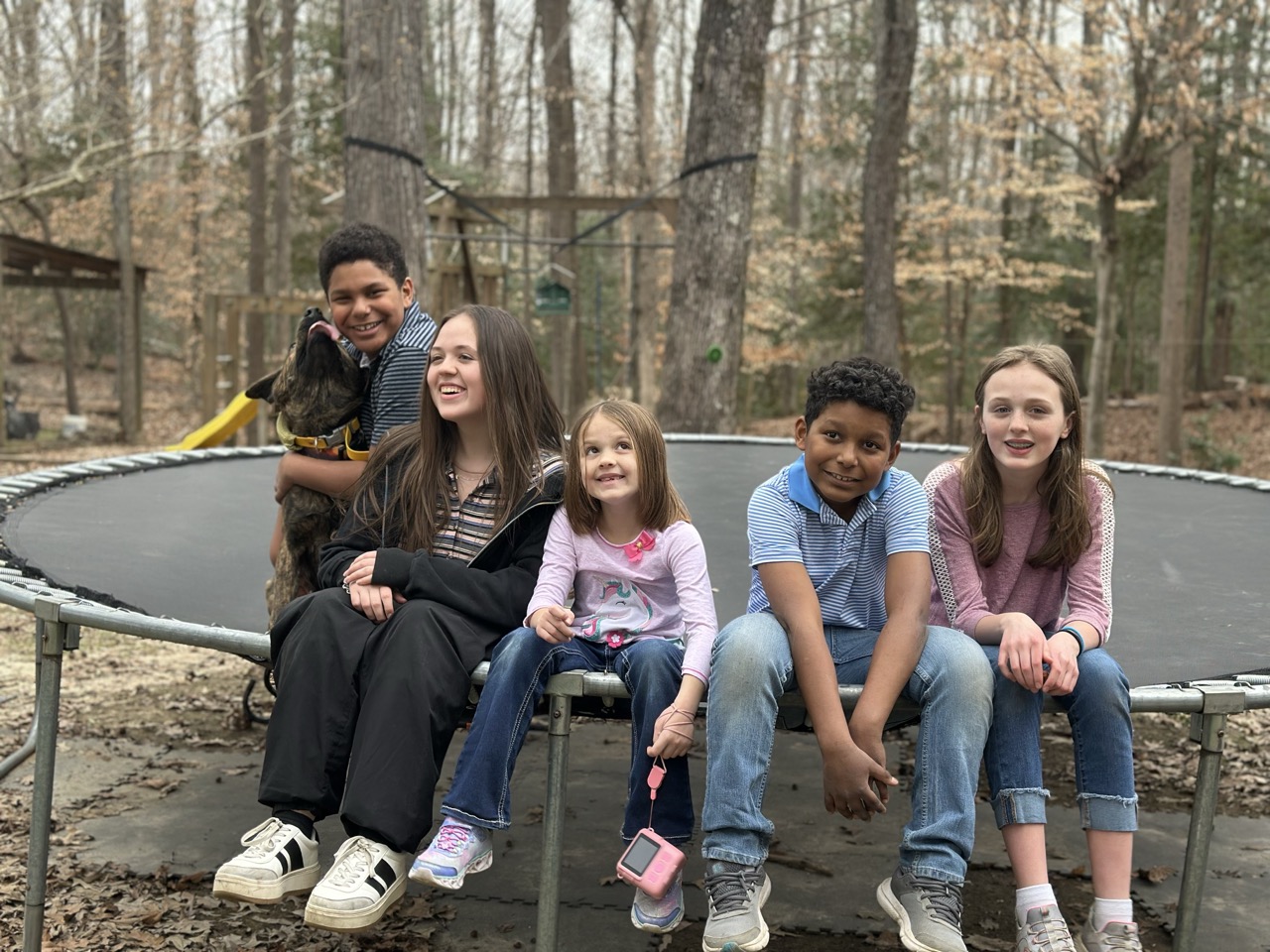
The Joys and Challenges of Fostering in Virginia
How You Can Help
Fostering in Virginia is a life-changing experience that provides a safe and nurturing environment for children who have been removed from their homes due to abuse, neglect, or abandonment. As a foster parent, you have the opportunity to make a positive impact on a child’s life by providing them with the love, support, and stability they need during a challenging time. Fostering in Virginia is not only rewarding for the child but also for the foster parent who gets to witness the incredible resilience and growth of these amazing kids.

The decision to become a foster parent should not be taken lightly. It requires a significant commitment of time, energy, and emotional support. That’s where the Bair Foundation comes in. With offices in Lynchburg, Richmond, and Virginia Beach, the Bair Foundation is dedicated to providing extensive training and support to potential foster parents, so they feel confident and prepared to welcome a child into their home.
The need for foster parents in Virginia is greater than ever. According to the Adoption and Foster Care Analysis and Reporting System (AFCARS) report, there are over 5,000 children in Virginia’s child welfare system, far more than there are licensed foster families to help them. These children come from all walks of life and range in age from infants to teenagers. Some may have special needs or require extra support due to trauma they’ve experienced.
Becoming a foster parent is a journey that starts with a desire to make a difference in a child’s life. The first step is contacting the Bair Foundation or your local department of social services to learn more about the requirements and process for becoming a foster parent in Virginia.
“Many new families come to us unsure of what to expect, with only one piece of information—they’ve heard there’s a great need for foster parents in our area. Often, they arrive a little skeptical, and honestly, I think that’s a good thing. Our orientation, along with other valuable trainings, is designed not only to show you the urgent need but also to equip you with the information you need to discern whether this is the right path for you—whether this is where God is calling you to serve.” Skylar Cardenas, a Virginia Bair Foster Parent Recruiter.
Virginia State requirements to become a foster parent:
Age & Residency
- Must be at least 18, though many agencies prefer 21+
- Must live in Virginia with a stable home—owner or renter acceptable
Orientation, Training, and Home Study
- Attend a one-time orientation session
- Complete pre-service training (27–40 hours), plus ongoing annual training (10–20 hrs)
- Undergo a Mutual Family Assessment/home study, including at least three face-to-face interviews and home safety inspections
Background & Health Checks
- Fingerprint-based criminal record check (VA & FBI), child abuse/neglect registry search, DMV driving record, and TB screening for all adults in the home
- Provide a physician’s report confirming physical and mental fitness
- Submit three non-relative references
Home & Safety standards
Your home must meet state-regulated safety and space standards, including:
- Safe structure and cleanliness; adequate bedrooms and beds (no shared beds; opposite-sex children over 2 must have separate rooms).
- Working heat, electricity, water, smoke detectors, fire extinguisher, emergency evacuation plan.
- Secure storage for medications, toxic substances, firearms/ammo.
- Valid driver’s license and insurance if transporting children.
Financial Stability
- Must show sufficient income to meet your household’s needs; no specific minimum, but documentation like pay stubs or tax returns is required.
- Foster parents receive a monthly stipend for each child to cover their needs
Additional Criteria
- Language: Ability to read, write, speak English sufficiently to care for and protect the child.
- Character & maturity: Must demonstrate responsibility, dependability, and good judgment.
- Continued training: Annually complete 10–20 hours of foster-parent-related training.

HOw to begin
Connect with Bair Foundation to start orientation and licensing.
The Training process
Once you’ve met the initial requirements, you’ll undergo a thorough training process to equip you with the skills and knowledge needed to be a successful foster parent. The Bair Foundation provides a comprehensive pre-service training program that covers topics such as:
- Understanding the foster care system
- Working with biological families
- Caring for children who have experienced trauma
- Managing challenging behaviors
- Building attachment and bonding with your foster child
In addition to this, the Bair Foundation offers ongoing support and training opportunities to help foster parents navigate the joys and challenges of fostering. With 24/7 support, you always have someone to turn to when you need guidance or assistance.
The matching process
Once you’re licensed as a foster parent, the matching process begins. Bair works closely with local departments of social services to identify children who would be a good fit for your family based on your preferences, skills, and experience. They strive to create a “kin-first” culture that keeps children connected to their families and communities whenever possible.
When a child is placed in your home, the Bair Foundation provides ongoing support to ensure a smooth transition. This may include additional training specific to the child’s needs, regular visits from a caseworker, and access to resources such as therapy, medical care, and educational support.
Regan and Wayne Lowe, a family who fostered with The Bair Foundation for eight years before closing their home after adopting their boys, had this to say about their experience and the support they received with Bair:
Wayne shared, “We relied heavily on our caseworkers, they were so helpful to us throughout the journey. My faith in Jesus was strengthened through this process and through these kids. The challenges paled in comparison to the love we felt for them.”
Ragen reflected on their first placements, a group of teenage boys who weren’t able to return home to their older sister. She recalled how their caseworkers with Bair supported them through that difficult moment:
“They sat around the table with us and helped us deliver that heartbreaking news. We had great caseworkers, they came to be like family.”
The Rewards of Fostering
While fostering can be challenging at times, it is also incredibly rewarding. As a foster parent, you have the opportunity to provide a child with a safe, stable, and loving home during a time of upheaval and uncertainty. You get to witness firsthand the resilience and strength of these children as they heal, grow, and thrive under your care.
Many foster parents also find joy in working towards reunification with the child’s biological family whenever possible. By supporting and encouraging the child’s relationship with their family, you play a crucial role in helping to strengthen and preserve those important bonds. Even if reunification is not possible, you can provide a child with a lifelong connection and a sense of belonging that they may not have otherwise had.
faqs about fostering in Virginia
How much money do you get for fostering a child in Virginia?
Foster parents in Virginia receive a monthly stipend to help cover the costs of caring for a child. The amount varies based on the child’s age and needs, but generally ranges from $700 to $1,500 per month. Additional funds may be available for children with special needs or circumstances. Enhanced Therapeutic Foster Care parents receive a higher rate for kids who have come from hard places.
What is Enhanced Treatment Foster Care in Virginia?
The Bair Foundation is only one of three agencies who can train and license enhanced treatment foster care children. These children come from difficult places, like treatment facilities, have high-needs and require additional training from Bair. Many parents who have had experience with their own children who are grown, are ideal therapeutic foster parents. Teachers, coaches, mental health professionals, social workers, pastors and ministry care workers make excellent therapeutic foster parents because they are familiar with behaviors and the extra care that treatment foster children experience.
What disqualifies you from being a foster parent in Virginia?
Prospective foster parents in Virginia may be disqualified if they have a history of child abuse or neglect, a felony conviction, or a serious physical or mental health condition that would prevent them from safely caring for a child. Other factors, such as inadequate housing or income, may also be disqualifying.
What does it take to be a foster parent in Virginia?
To become a foster parent in Virginia, you must be at least 21 years old, pass background checks, have adequate space in your home for a child, and complete a comprehensive training program. You’ll also need to participate in a home study and be willing to work closely with social workers and birth families.
How many kids can you foster in Virginia?
The number of children you can foster in Virginia depends on several factors, including the size of your home, your experience and skills, and the needs of the children in your care. Generally, foster homes can accommodate up to six children, but this may vary based on individual circumstances.
become a foster parent through the bair foundation
Fostering in Virginia is a meaningful way to make a difference in the lives of children who need it most. By opening your heart and your home to a child in need, you have the opportunity to provide them with the love, stability, and support they need to heal and thrive. With the help of organizations like the Bair Foundation, you’ll have the training, resources, and ongoing support you need to be a successful foster parent. If you’ve ever considered fostering, now is the time to take the first step and learn more about how you can change a child’s life – and your own – through fostering in Virginia.
On average, 200,000 children enter the system each year. Our work is never done.
You can take the first step toward providing the loving home that every kid deserves.
Become a Foster parent